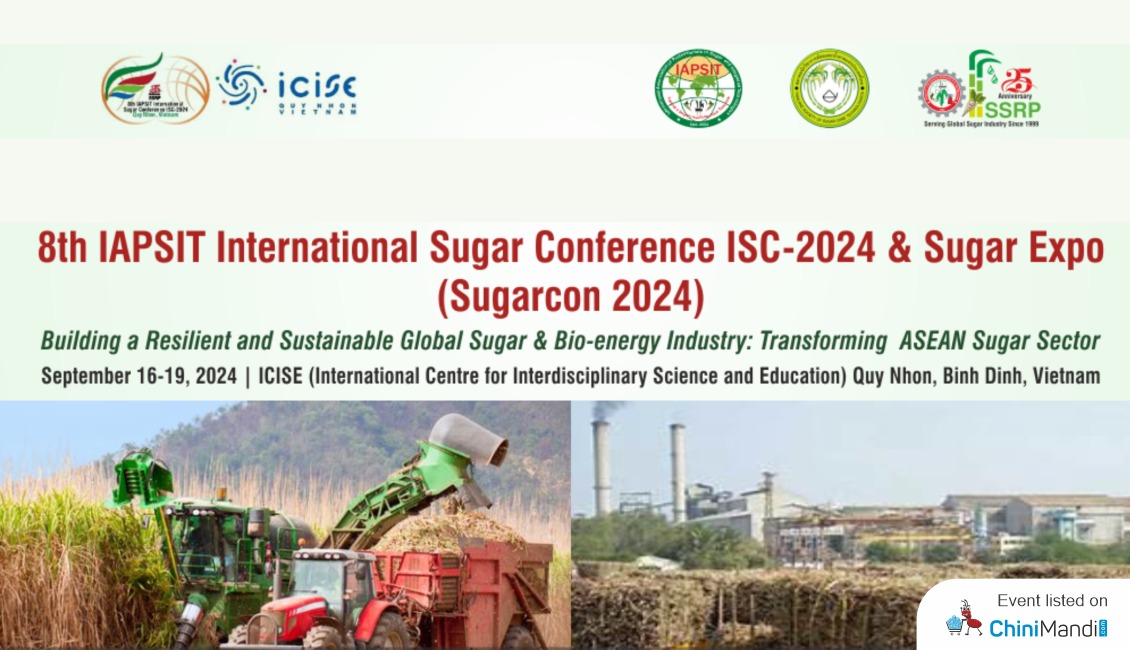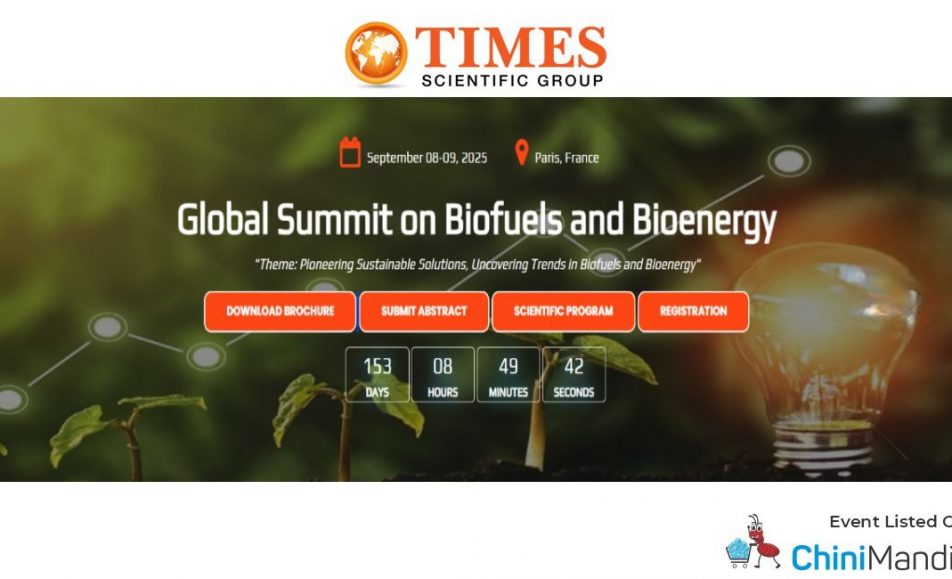
About The Conference :-
The sugar industry subsumes the production, processing and marketing of sugars, mainly comes from sugarcane and sugar beet. Sugarcane, on average, accounts for nearly 80% of global sugar production, is generally regarded as one of the most significant and efficient sources of biomass for bio-fuel production. A wide range of environmental and social issues are connected with sugar production and processing, and sugar crop growers, processors, plus energy and food companies, are seeking ways to address concerns related to sugar production, biofuels and sustainability. The global sugar industry should aim at continually adapting to remain competitive in an environment of rising production costs, climate variability, biotic and abiotic stress, compliance costs, and change in production and consumption patterns. The production, consumption and trade of sugar in various regions was impacted due to pandemic and climate related issues. Nevertheless, the sugar industry has the required potential to positively influence and contribute towards a number of key issues related to inclusive and sustainable development in different ways. These includes harnessing the potential of technological innovation in areas like bio-energy, green harvest and sustainable uses of trash, C-sequestration, climate resilient varieties, Agriculture 4.0 & agro-technologies, bio-intensive crop production & protection technologies, water management in field and process, zero pollution discharge, recycling of steam, valorization of biomass, cellulose, lignin, molasses, PMC, vinasse, CO2; cellulosic ethanol, H-fuel cell technology, bio-fuels & aviation fuel, organic & specialty sugars, green fertilizer, bio-degradable plastic and bio-based products of pharmaceutical, medicinal and industrial importance.
One of the key pathways to a resilient and sustainable future for the global sugar industry is to adopt bio-refinery models which have the capacity to generate higher value products from sugar crops and its processed residues. Bio-fuels production can help speed up and leverage the transition to a low carbon economy. The emerging global bio-economy is creating new market opportunities for the sugar industry while underpinning the viability of existing crop products and supply chains. The development of innovative technologies, knowledge, and capacity to increase revenue from the existing sugar complexes with speedy paths to market will ensure increased productivity, profitability, competitiveness and sustainability. Sugar industry especially in countries like Brazil, India, Australia, Thailand is an example of a sustainable economy, ecologically prudent and socially reasonable to a great extent. These countries have new frame of policies on bio-ethanol and other sugarcane based allied industries. The experience gathered needs to be shared for sustainable growth and development of sugar & integrated industries in ASEAN and other developing countries. The International Association of Professionals in Sugar and Integrated Technologies (IAPSIT) and Society for Sugar Research & Promotion (SSRP) are organizing an International Conference on Building a Resilient and Sustainable Global Sugar & Bio-energy Industry: Transforming ASEAN Sugar Sector which will provide a grand opportunity and a vibrant platform with a convergence of all the stakeholders from across the globe including researchers, technologists, extension officers, managers, industry officials, manufacturers, suppliers, policy makers and progressive farmers to share their views and experiences on global issues and initiatives for profitable and sustainable growth of sugarcane, sugar beet, sugar and integrated industries across the globe especially in ASEAN region.
The ISC-2024 will stress upon Building a Resilient and Sustainable Global Sugar & Bio-energy Industry and will also focus on reviving the sugar production in ASEAN countries through improved technologies and better management.
Click here to know more : https://www.isc2024.com/index.html



